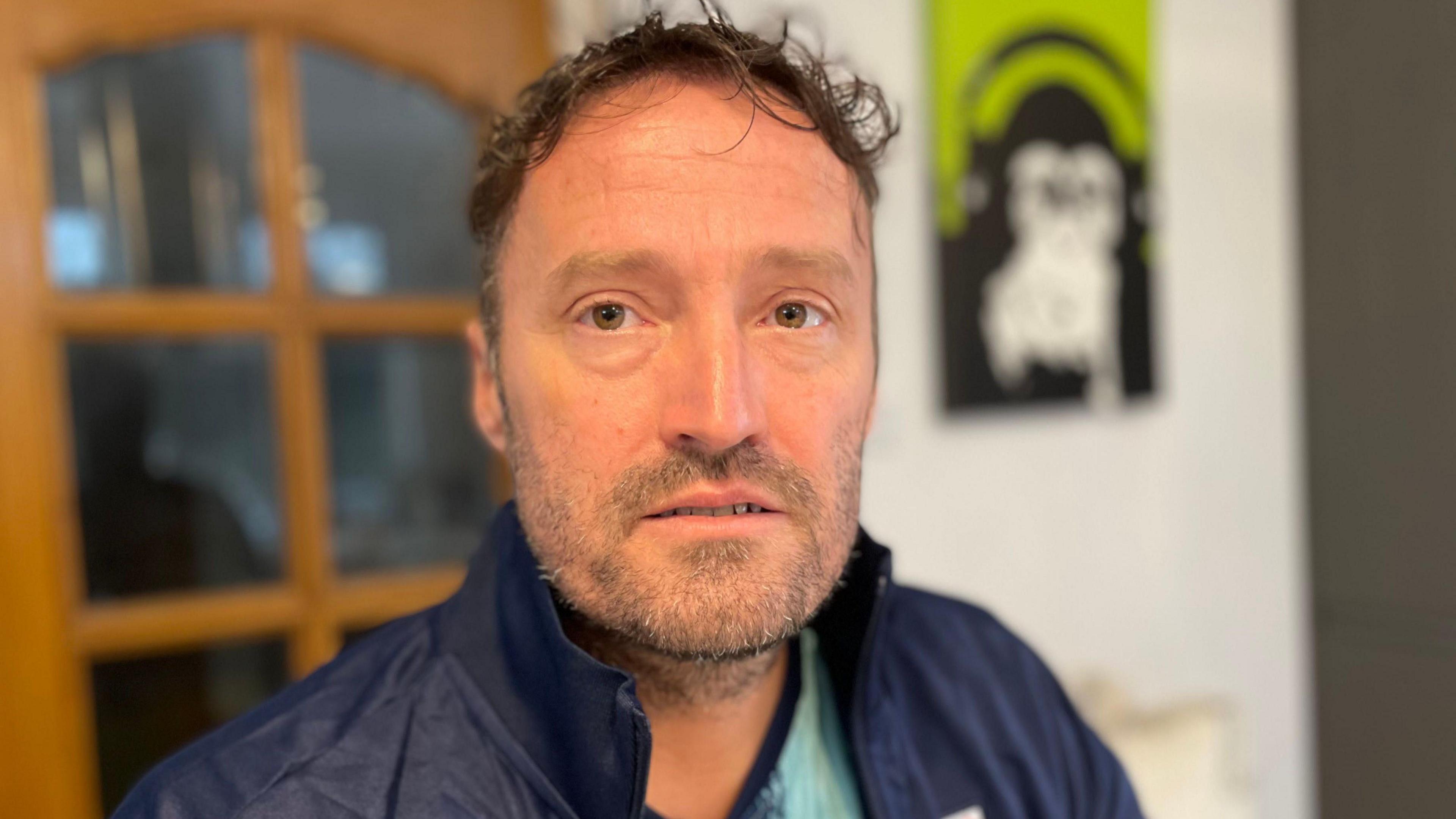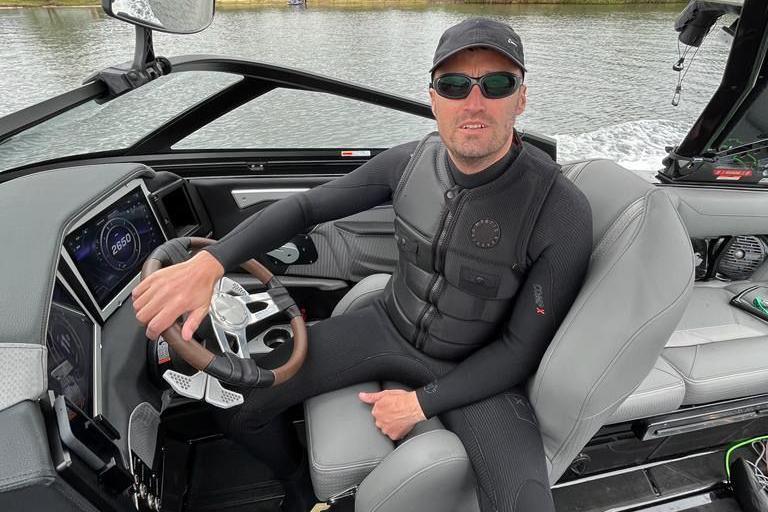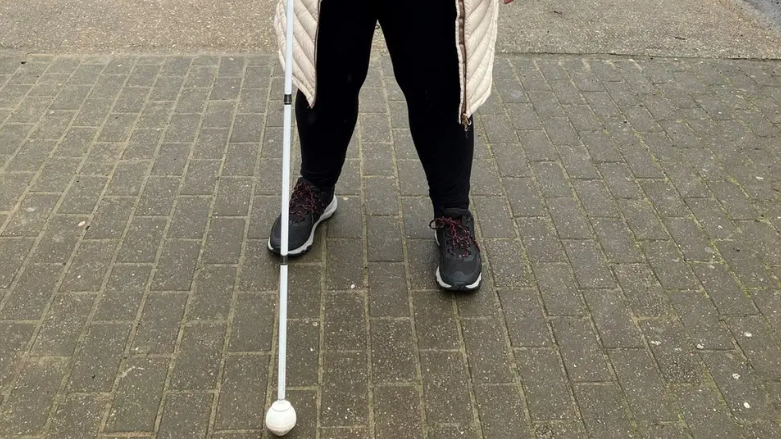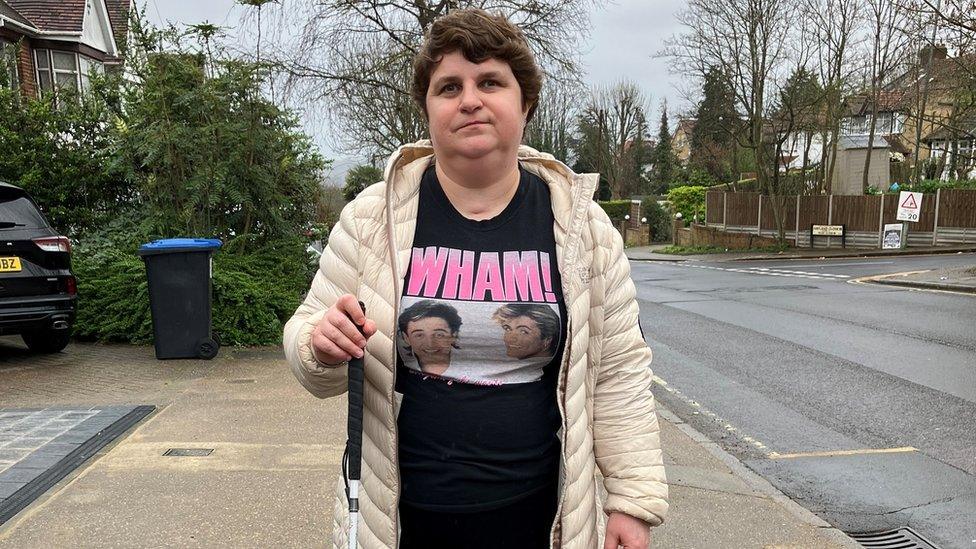Man losing sight faces long wait for white cane

Steve Smith has been told he may have to wait up to a year to be trained to use a white cane
- Published
A man who is rapidly losing his sight has expressed his frustration at long waiting times for support.
Steve Smith, from Ilkeston, Derbyshire, has retinitis pigmentosa, a rare hereditary condition, which means he is no longer able to drive or work as a mechanical engineer.
The 47-year-old has been assessed by Derbyshire County Council but said he had been told it could take up to a year to receive training on how to use a white cane.
Councillor Joss Barnes, cabinet member for adult care, said the authority had visited Mr Smith several times to assess his needs and offered advice as well as equipment to help him at home.
Mr Smith told the BBC he was diagnosed with the condition when he was a child, and his eyesight started to deteriorate significantly in October 2024.
Retinis pigmentosa is an inherited eye condition, external that affects the photoreceptor cells responsible for capturing images from the visual field, according to charity Retina UK.
The charity says people with the condition experience a gradual decline in their vision because two types of photoreceptor cells which are responsible for capturing images die.
Mr Smith said he felt proud of the home he had built for his partner and two daughters but the former self-employed engineer is frustrated at having a garage full of power tools he can no longer use due to his deteriorating eyesight.
"I used to do house refurbishments from start to finish," he said.
"But I can't use the tools any more as I'd probably have no fingers left. I just can't do quality work any more."
He has also had to give up hobbies including wakeboarding and sailing a boat he owned with two friends.

Mr Smith has sold his share of a boat he had bought with friends
Mr Smith contacted the council and asked for vision rehabilitation support in June 2025.
He said he was duly assessed but was told the following month there could be extensive waiting times for additional support.
"I've not even got a white cane yet. There's a year's waiting list to get a white cane, which I just found ludicrous," he said.
He said he then suggested he could buy his own cane but was advised not to by Sight Support Derbyshire.
"They said 'don't buy one because you need training'. Yet it's more the adaptive technology I am interested in," he said.
"I had suggested buying my own equipment and then claiming the money back later but was told I couldn't."

Mr Smith says there is a long wait for training on how to use a white cane
The Royal National Institute of Blind People said thousands of blind and partially sighted people were being forced to put their lives on hold due to long waiting lists.
The charity has called on the government to commit to ensuring blind and partially sighted people get the emotional and practical support they need.
Alexis Horam is a visionary hub specialist and said Mr Smith's experiences were not uncommon.
She also said she understood why people wanted to buy the equipment themselves.
"The thing is, often people are spending way too much money on devices and gadgets," she said.
"And not only that, unless you are shown how to use a device or gadget properly, the chances are you will think it's not for you and put it in a drawer."
The council's Joss Barnes said: "We assessed Mr Smith as needing to use a long cane, but unfortunately there is a six to nine-month waiting list for the training he needs in order to use it safely.
"This service is delivered for the county council by Sight Support Derbyshire, who are specialists in this area.
"There is a national shortage of qualified vision rehabilitation specialists who are needed for this support, and unfortunately this is the case in Derbyshire.
"We've explained this to Mr Smith and offered our apologies that he will have to wait for this part of the service."
A government spokesperson said everyone with sight loss deserved "high-quality support" to help them live independently.
"Local authorities have a legal duty to provide vision rehabilitation where it's needed - and we expect regulators to take action if they are failing in their duties," they said.
"We are working at pace to reverse more than a decade of neglect in our health and social care services, through our Plan for Change."
Get in touch
Tell us which stories we should cover in Derby
Follow BBC Derby on Facebook, external, on X, external, or on Instagram, external. Send your story ideas to eastmidsnews@bbc.co.uk, external or via WhatsApp, external on 0808 100 2210.
Related topics
- Published22 March 2024

- Published19 February 2024